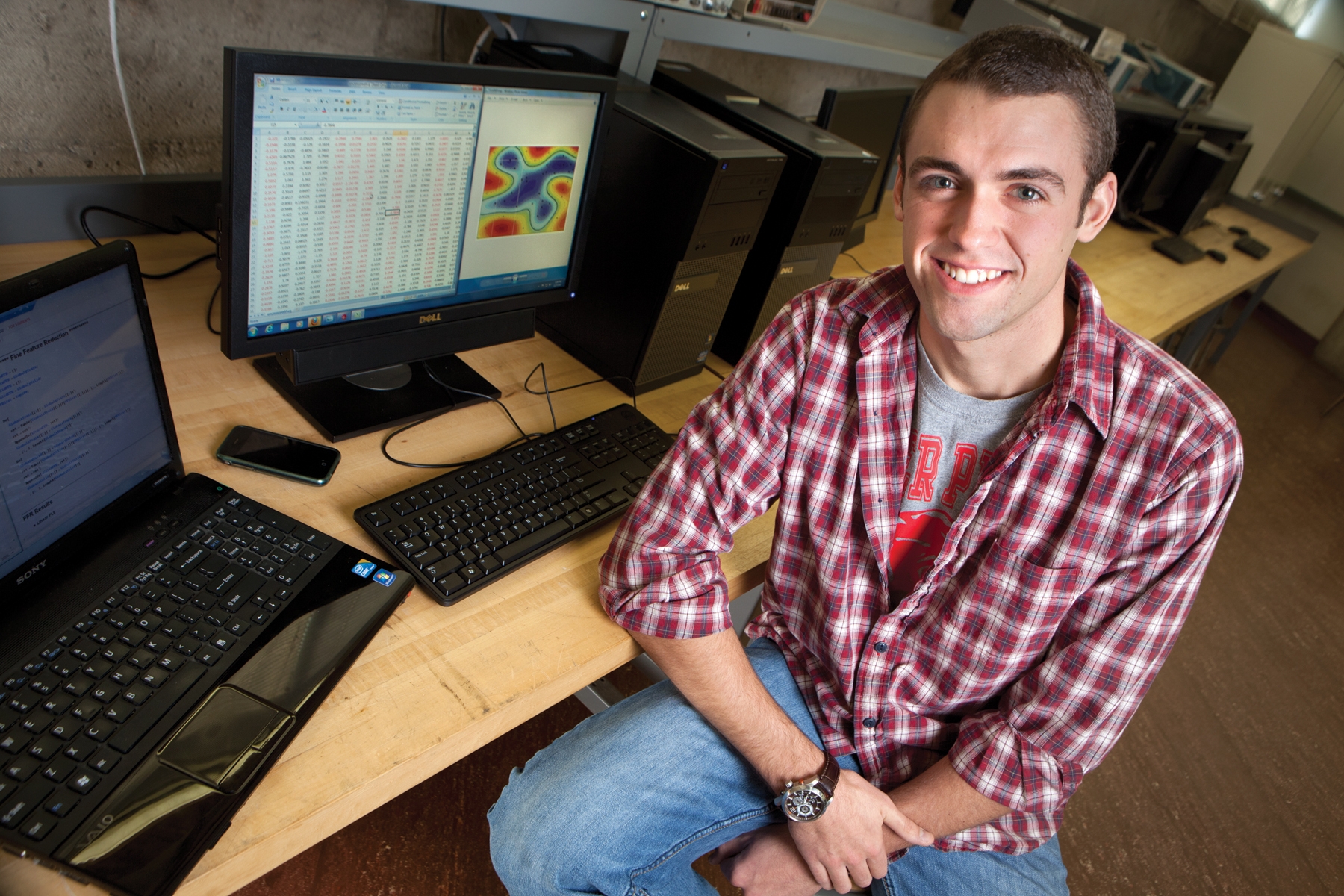
IMPROVING CAMPUS INFRASTRUCTURE
Some of the major improvements to infrastructure completed over the summer are very visible; others are not. Read in this issue about the many major projects completed by Physical Facilities and Information Technology Services, as well as the new programs offered by the University Center for Training and Development.

SCHOOL OF PHARMACY AND PHARMACEUTICAL SCIENCES OPENS NEW BUILDING
The opening of the new, $60-million School of Pharmacy and Pharmaceutical Sciences at the University's Health Sciences Campus in Johnson City, N.Y., headlines this quarterly report, but there's also good news about collaborations, external funding and student successes. Read more in this issue.

SUCCESSFUL INITIATIVES SUPPORT STUDENTS
It takes donors at many levels to make Binghamton University successful, and in this issue of the quarterly report, you can read about a number of them. Whether it's AVANGRID offering full-tuition scholarships and capstone project support, or playing golf to benefit the Alumni Legacy Scholarship, the Division of Advancement works with Binghamton supporters.

BINGHAMTON RESEARCH FUNDING SETS RECORD
Binghamton University reported research expenditures totaling $47.5 million in 2017-18, an increase of about 19 percent from the previous fiscal year. The figure tops 2011-12, the campus’ all-time best year for research funding, when just over $40 million was reported. The new record, which follows several years of steady growth, is an important sign of the campus’ creativity and innovation. Healthcare research accounted for nearly a third of expenditures, with electronics packaging and systems engineering following at about 22 percent.

BAXTER THE BEARCAT BOOSTS SCHOOL SPIRIT
The Division of Student Affairs spent the summer hosting students and families for orientation and preparing for the opening of the fall semester. With some new people on board and some others with new duties, it has been a busy time. Not too busy, though, to show Binghamton University pride, as you'll read about the new Baxter the Bearcat Bench in the University Union in this issue.

STUDENT-ATHLETES CONTINUE TO SUCCEED ACADEMICALLY
Student-athletes continue to shine on and off the courts and fields. The Athletics Department sets high academic standards, and student-athletes surpass them across the board. Read about the accomplishments made by student-athletes in their sports and in the classroom – and check out the videos showcasing fall sports and the new women's head basketball coach, Bethann Shapiro Ord, in this issue.

HELPING TO MAKE THE CAMPUS MORE INCLUSIVE
The Division of Diversity, Equity and Inclusion works to educate and empower everyone on campus in ways that create a welcoming community. From the Udiversity Educational Institute, that holds trainings for students, faculty and staff, to the Multicultural Resource Center and Q Center, the division's offices that work to build bridges and support students though education and events such as Sundaze, part of its Welcome Week programming. Read about the division's recent initiatives in this report.

DONOR SUPPORT ADVANCES BINGHAMTON UNIVERSITY
The Binghamton University Foundation had a successful 2017-18 year, bringing in the second highest amount of cash ever in support of the University. Read the numbers in this issue of the quarterly report, and learn one way the Foundation celebrates its donors.

Bioengineering student’s work pays dividends
Chris Paquette’s research in artificial intelligence and machine learning may lead to innovations in cancer treatment. And he recently won a prize for an agricultural application of the same technology.
Paquette, a 2012 graduate, worked with Walker Land, research professor of bioengineering, to analyze gene expression data and predict the recurrence of cancer using a machine learning algorithm called Kernel Partial Least Squared, or KPLS. Similar data mining and artificial intelligence techniques are used by companies such as Amazon and Google to predict searches and rank pages.
“The technology exists and is proven,” Paquette said. “Now it’s a question of: How do we take that and apply it to other fields?”
Apply it he did. Paquette received $5,000 for his application of KPLS research to an InnoCentive project. InnoCentive is a website where industry, businesses and government agencies can tap into a community of problem solvers, and pay a one-time award for rights to the crowd-sourced solution.
The Environmental Defense Fund and Iowa Soybean Growers posted a challenge requesting technology to predict crop yield using nitrogen sensors that would help manage fertilizer use and boost crop productivity. Paquette’s winning idea was to use blimps with on-board sensors that would fly over crops and take nitrogen readings, which would correlate with the vigor of the crop. The information collected would be fed to the farmer’s computer for analysis.
“The guy’s very creative; he can see things that a lot of other students can’t see,” Land said of Paquette. “He thinks about things in a way that most people don’t.”
Paquette plans to pursue a doctorate in machine learning and artificial intelligence. He used the KPLS research for his senior design project as well: in this case to predict the likelihood of lung cancer recurring within five years and to determine whether chemotherapy is necessary.
“Right now, cancer patients are getting chemo when they don’t need it,” Paquette said. “My dad had chemotherapy and it’s terrible. It destroys your quality of life.”